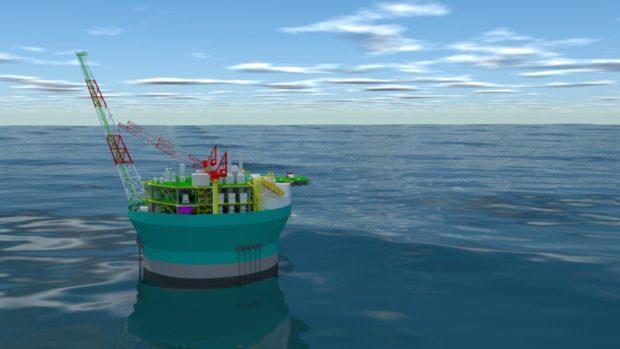
A researcher at Aberdeen University has said that environmental groups are “not looking at the data” on the Cambo oilfield debate.
Arturo Regalado is an energy economist formerly of IHS Markit and now a doctoral researcher at the National Decommissioning Centre, which is run by the university and the Net Zero Technology Centre.
He set out his argument with data forecasting that oil and gas demand through to 2036 will outpace domestic production if new fields are not brought online.
Mr Regalado said: “The discussion of banning new oil projects has recently focused on the Cambo field in the West of Shetland. Environmental groups claim that the severity of the climate emergency warrants not allowing the development of the field. However, the claims are not looking at the data.”
He argues that the figures, sourced through the Oil and Gas Authority (OGA) and the Digest of UK Energy Statistics 2021 (DUKES) illustrate the need for projects like Cambo to help fight climate change, as the alternative would mean heavier imports.
Cambo, a major project which will target around 170m barrels in its first phase, has become a focal point for environmental protestors in the lead-up to the COP26 conference in Glasgow in November.

Groups such as Greenpeace have argued that progressing the project would undermine efforts to reach net zero by 2050.
Mr Regalado said: “If new projects are not allowed to develop, it will be almost impossible to meet UK’s demand given the production decline rate of existing fields.
“The alternative is to import more crude oil with the caveat that the UK cannot guarantee that net-zero policies are used from the sources. The curtailment policy could actually lead to environmental damage.
“This leads to an important point: curtailing supply in the UK will not lead to net-zero by itself, demand will still need to be met. It is the demand for crude oil that needs to be addressed in order to achieve net-zero.”
It comes in the wake of a landmark UN report earlier this month which set out that the world is on track to exceed global temperature rises of 1.5C over the next two decades due to the impact of humans on the planet, particularly use of oil and gas products.
UN General-Secretary Antonio Guterres said the report “must sign a death knell” for fossil fuels, with climate groups calling for the end of new projects in the UK.
Mr Regalado added: “The recent IPCC report, COP26, and IEA’s Net Zero to 2050 have led environmental groups to ask for a complete stop of new oil and gas projects. This is not, however, a sensible policy. Data and thorough analysis, not ideology, should guide these decisions.”
Recommended for you


 © Arturo Regalado
© Arturo Regalado